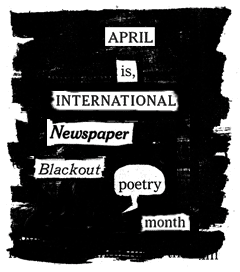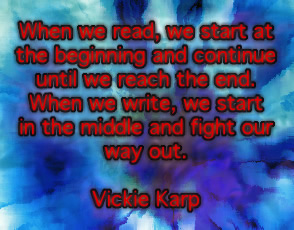Not an original idea ;-) but there should be more opportunities for limericks!
The limerick packs laughs anatomical
Into space that is quite economical.
But the good ones I've seen
Hardly ever are clean
And the clean ones so seldom are comical. -- Anonymous
Limericks are 5 lines, with an aabba rhyme.
The rhythm is easy to catch once you've read plenty of good limericks. (There is a clear and succinct description below, though.) The
Limerick Data Base has a big collection where submitted limericks are scrutinized for meter.
So on this great day for Saint Patrick,
Whip out your computer and write quick.
Tap out some fierce verse.
Though beat be adverse
It all can be cleaned with a mouse click.
More
In 1924, a series of responses to the famous (clean ;-) Nantucket limerick appeared in various newspapers. Those are preserved at
Yesterday's Island and new ones have been added to continue the saga. Here's the original four:
There once was a man from Nantucket,
Who kept all of his cash in a bucket,
But his daughter, named Nan,
Ran away with a man,
And as for the bucket, Nantucket.
—Princeton Tiger
But he followed the pair to Pawtucket,
The man and the girl with the bucket;
And he said to the man,
He was welcome to Nan,
But as for the bucket, Pawtucket.
—Chicago Tribune
Then the pair followed Pa to Manhasset,
Where he still held the cash as an asset,
But Nan and the man
Stole the money and ran,
And as for the bucket, Manhasset.
—Exchange
Of this story we hear from Nantucket,
About the mysterious loss of a bucket,
We are sorry for Nan,
As well as the man—
The cash and the bucket, Pawtucket.
—Pawtucket Times
The following is a very good description of the limerick meter:
Dylon Mirti wrote 10/10/95
I don't know if you're the authority
That will impart the absolute truth to me
But I'm not really sure
Just what is the structure
Of the limericks I'm slaughtering brutally.
Is it just 8 8 5 5 8
Or is it 8 8 6 6 8
Can syllables be crammed
And more than eight be jammed
To keep the meter read at the same gait?
My girlfriend and I can't tell
What makes these little rhymes swell
Please write me back
And teach me the knack
Of writing a limerick well!
What I really need to know is whether or not syllable cramming is allowed, or whether the exact number of syllables MUST equal the assigned number for the line. And, is there an exact number of syllables assigned for each line?
Thanks for your time.
======
Dylon, of course, gets a gold star for this well-written request.
For expediency, Toast Point did not phrase his reply in limerick form, but it covered the bases nonetheless:
The number of syllables is not as important as the beat pattern:
da DA-da-da DA-da-da DA-(da) (da)
da DA-da-da DA-da-da DA (da) (da)
da DA-da-da DA (da)
da DA-da-da DA (da)
da DA-da-da DA-da-da DA (da) (da)
Meaning that you can leave off the syllables in parentheses, but 1,2 and 5 should match each other, and 3 and 4 should match.
For instance:
There ONCE was a GIRL from nanTUCKet - leaves off the final (da)
A MAIDen whose NAME was feLIcity - uses all of them
It's more important that the STRESSES of the word be on the strong beats than to have exactly the right number of syllables.
 I love collections :-) One of Kenneth Koch's ideas in Wishes, Lies, and Dreams was to sprinkle a poem with Spanish colors (which grew into other words too).
I love collections :-) One of Kenneth Koch's ideas in Wishes, Lies, and Dreams was to sprinkle a poem with Spanish colors (which grew into other words too).














































